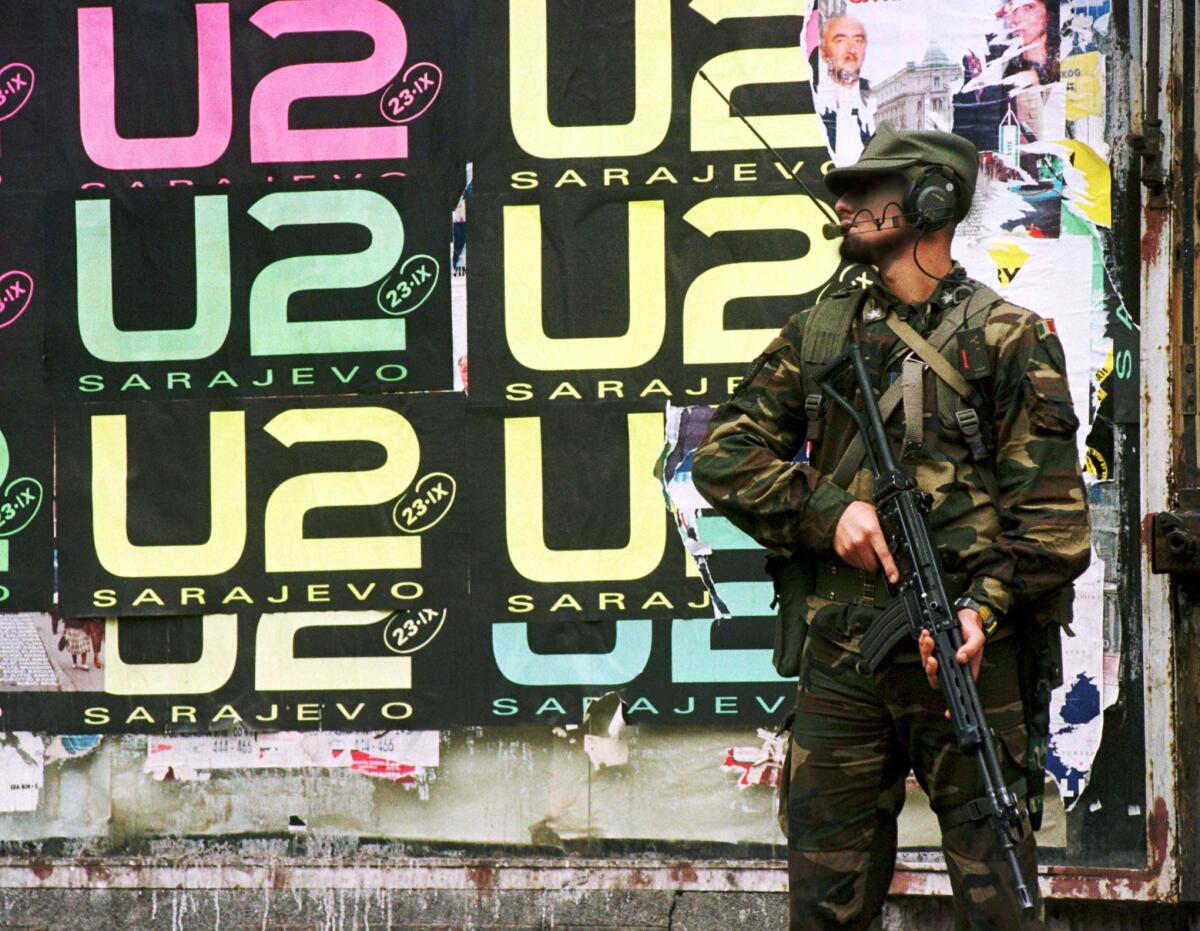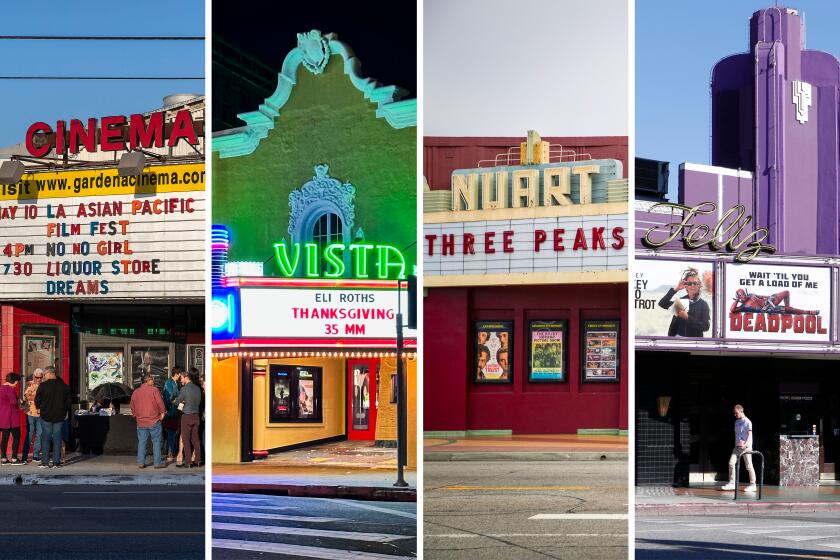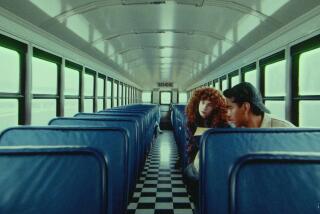A besieged Sarajevo turns to music in ‘Kiss the Future’ — and one band hears the call

- Share via
During the years of relentless attacks on Sarajevo in the early 1990s, residents tried to turn off the sounds of the siege all around them by turning on music — as a release, but also as a bid to feel normal amid Serbian bombs and sniper fire. What happened when this underground scene’s defiance reached U2 frontman Bono’s ears is the heart of director Nenad Cicin-Sain’s documentary “Kiss the Future.”
Just as the Oscar-nominated Ukraine dispatch “20 Days at Mariupol” galvanizes us with its portrait of life under an aggressor’s evil, and the hit Netflix doc “The Greatest Night in Pop” reassures viewers that good is possible when artists come together for a cause, the story that “Kiss the Future” tells — culminating in U2’s 1997 concert in Sarajevo, two years after the Dayton Peace Agreement — offers an admirably potent blend of darkness and light. Specifically, the light that can emerge from darkness.
In the film’s archival video, home footage and testimonials, it’s a harrowing reminder of the Bosnian War’s impact on Sarajevans, told by the people who lived through it (and its most famous correspondent, CNN’s Christiane Amanpour, as well as former President Bill Clinton). But it also shows what renewal looks like when one of the biggest bands in the world — represented here by interviews with Bono, the Edge and Adam Clayton — amplifies your plight and makes good on a promise to celebrate your survival. Only a few years prior to that celebrated show at Sarajevo’s Koševo stadium, the onetime Olympic venue had been a wartime grave site.
First, Cicin-Sain offers a helpful primer in how Yugoslavia’s breakup set the stage for a territorial war waged by Bosnian Serbs, led by Slobodan Milosevic and designed to shatter the multiethnic fabric of Sarajevo. As atrocities mounted, the city crumbled and world leaders did nothing. But culture-starved Sarajevans created a thriving, generator-powered basement scene of art, dance, rock (one drummer kept showing up to play after losing a hand), theater and spotty TV broadcasts.
We’ve mapped out 27 of the best movie theaters in L.A., from the TCL Chinese and the New Beverly to the Alamo Drafthouse and which AMC reigns in Burbank.
In 1993, Bill Carter, a young transplanted American aid worker (and a regular onscreen commentator), schemed to get Sarajevo’s troubles noticed by angling for an interview with Bono when U2’s media-circus-themed Zoo TV tour stopped in nearby Italy. The appeal to prestige rock’s premier empath worked: The footage from that consequential 13-minute meet-up is fascinating. We see Bono transform from a no-eye-contact-please megastar to an activist son of Ireland in full engagement.
Soon, the band was regularly interrupting their European concerts for real-time satellite linkups to Carter in undisclosed locations. U2 now admits that these well-intentioned bids to spread awareness smacked of reality TV: Bono describes it here as “pain and anguish as entertainment” in a welcome moment of candor.
In its brisk pace, well-deployed song choices and storytelling energy, “Kiss the Future” is skillful at avoiding seeming like an ode to U2, even though the band’s involvement fills over half the movie. The 1997 concert is certainly presented as the moment when Bosnians felt they’d re-entered the wider world. It does seem a missed opportunity, however, not to give us more about the local bands that were chosen to open for U2, or richer sketches of the Bosnian participants for whom we know art was a regular lifeline.
In the most ironic of setbacks for a consciousness-raising pop star, Bono’s shot vocal cords left him unable to sing through much of the band’s set list. It may be the reason why footage from that eventful night in Sarajevo hasn’t been widely seen outside U2’s inner circle. But it’s also why this heartfelt documentary is the right platform for it, given who made up for all those missing verses: a battle-scarred but emotional audience of over 40,000 people who knew every word and could fill the absence with a collective voice.
'Kiss the Future'
Not rated
In Serbian, Bosnian, English, Russian and Italian, with English subtitles
Running time: 1 hour, 42 minutes
Playing: In limited release
More to Read
Only good movies
Get the Indie Focus newsletter, Mark Olsen's weekly guide to the world of cinema.
You may occasionally receive promotional content from the Los Angeles Times.











